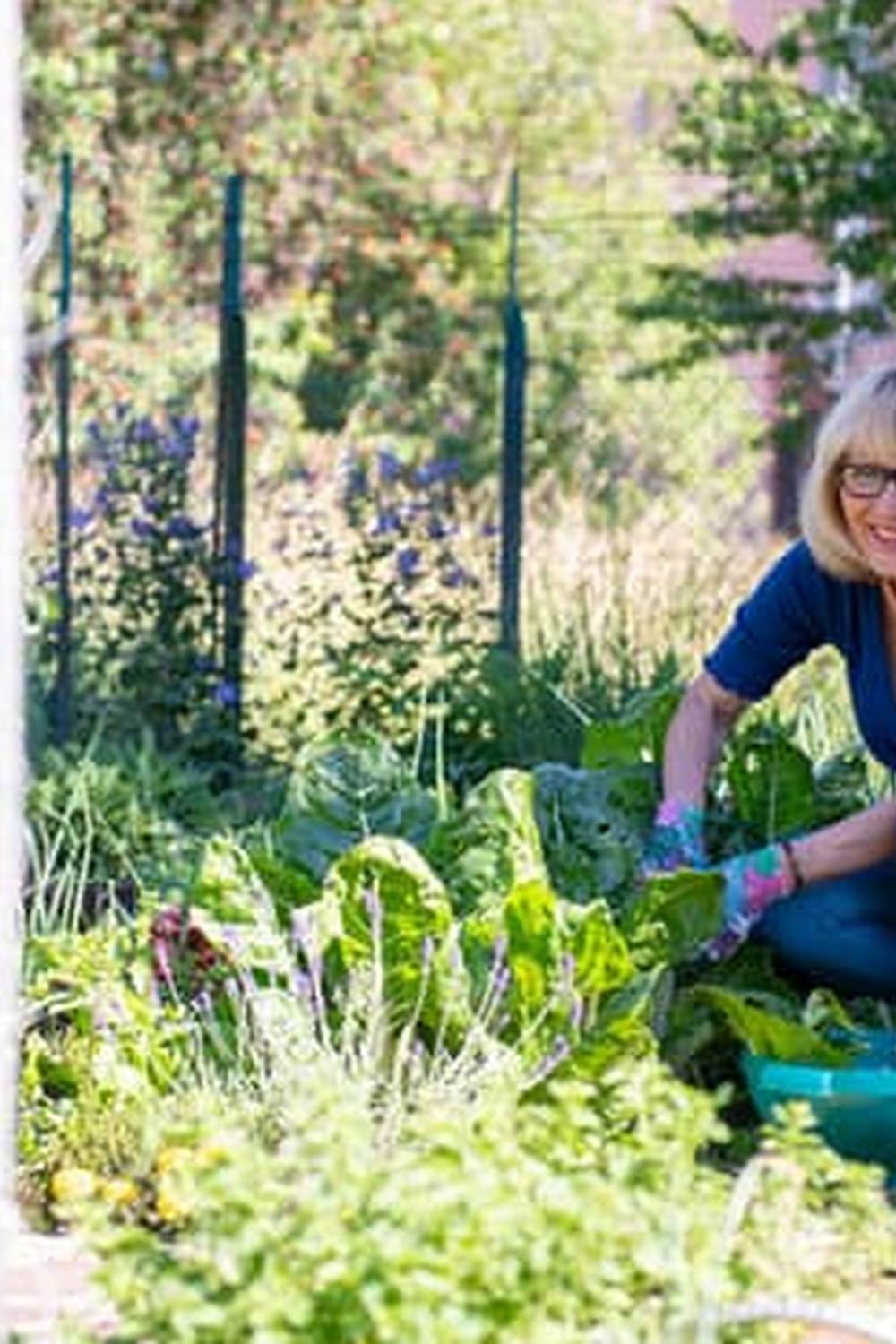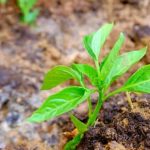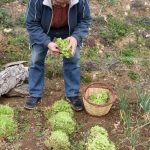Are you interested in starting a vegetable garden but don’t have a large outdoor space to work with? Don’t worry. You can still enjoy the benefits of growing your own fresh produce by starting a small container vegetable garden. In this article, we will explore the world of vegetable gardening in small containers and provide you with all the information you need to get started.
Vegetable gardening in small containers offers a convenient and accessible way for urban dwellers, apartment renters, and those with limited outdoor space to enjoy the pleasures of growing their own food. Whether you have a balcony, patio, or even just a sunny windowsill, you can create a thriving mini-garden that will yield bountiful harvests of delicious, homegrown vegetables.
In the following sections, we will delve into the various aspects of small container vegetable gardening, including the benefits of this gardening approach, how to choose the right vegetables for small containers, selecting the ideal containers for your plants, soil and fertilizer requirements, watering and maintenance tips, pest and disease management strategies, as well as harvesting and enjoying the fruits of your labor.
By the end of this article, you will be equipped with all the knowledge and practical advice needed to kick-start your own miniature vegetable garden.
Benefits of Growing Vegetables in Small Containers
Growing vegetables in small containers offers many benefits for both beginner and experienced gardeners. Whether you have limited outdoor space, want to add greenery to your balcony, or simply prefer the convenience of container gardening, there are numerous advantages to growing vegetables in small containers.
Firstly, vegetable gardening in small containers allows for efficient use of space. Even if you only have a small patio or balcony, you can still grow your own fresh produce. With the right choice of vegetables and containers, you can maximize your available space and enjoy a bountiful harvest.
Furthermore, small container gardening is ideal for those who may have physical limitations or mobility issues. The smaller scale of these gardens makes them more manageable and accessible, allowing individuals with limited mobility to still enjoy the pleasures of growing their own vegetables.
Lastly, growing vegetables in small containers can also be less time-consuming compared to traditional garden beds. Maintenance tasks such as weeding and watering are minimized, making it an attractive option for busy individuals or those new to gardening.
- Efficient use of space
- Accessibility for individuals with physical limitations
- Reduced time commitment for maintenance tasks
Choosing the Right Vegetables for Small Containers
When it comes to vegetable gardening in small containers, it’s important to choose the right vegetables that will thrive in this environment. While some vegetables may require more space to spread their roots, there are plenty of options that are well-suited for small container gardening.
One popular vegetable that does well in small containers is lettuce. Lettuce has shallow roots and grows quickly, making it an ideal choice for small spaces. Additionally, herbs such as basil, parsley, and chives are also great options for small containers.
These herbs not only add flavor to your meals but also don’t require a lot of space to grow. Cherry tomatoes and peppers are other vegetables that can be grown successfully in small containers, as long as they have enough sunlight and proper care.
It’s important to consider the size of the container when choosing the right vegetables for small containers. Some vegetables may need larger containers than others to accommodate their root systems. For example, tomatoes typically require at least a 5-gallon container to thrive, while smaller plants like lettuce can do well in a 1-gallon pot. Understanding the space requirements of each vegetable will help you make informed decisions when selecting what to plant in your small container garden.
| Vegetable | Ideal Container Size |
|---|---|
| Lettuce | 1 gallon |
| Basil | 1 gallon |
| Parsley | 1 gallon |
Selecting the Ideal Container for Vegetable Gardening
When it comes to vegetable gardening in small containers, selecting the ideal container is crucial for the success of your garden. The right container will provide adequate space for your vegetables to grow, proper drainage, and insulation for the roots. There are several options to choose from when selecting containers for small scale vegetable gardening.
Types of Containers
There are various types of containers that can be used for vegetable gardening in small spaces. Some popular options include plastic pots, wooden boxes, ceramic planters, and fabric grow bags. Each type has its own benefits and drawbacks, so it’s important to consider the specific needs of your chosen vegetables when making a selection.
Size and Depth Requirements
The size and depth of the container are important factors to consider when choosing the ideal container for vegetable gardening. Some vegetables have deeper root systems and require larger containers, while others can thrive in shallower containers. It’s essential to research the specific requirements of the vegetables you plan to grow and select containers that accommodate those needs.
Drainage and Insulation
Proper drainage is essential for preventing waterlogged soil, which can lead to root rot and other issues. Additionally, containers with good insulation properties can help regulate soil temperature and protect the roots from extreme weather conditions. When selecting a container for small scale vegetable gardening, it’s important to choose one with adequate drainage holes and insulating properties to ensure the health and growth of your plants.
Soil and Fertilizer Requirements for Small Container Gardening
When it comes to vegetable gardening in small containers, the soil and fertilizer requirements play a crucial role in the success of your garden. Since the plants will be confined to a limited space, it’s important to provide them with the right nutrients for healthy growth and bountiful harvests.
The type of soil you use for small container gardening is essential. It’s best to opt for a high-quality potting mix that is specifically formulated for container gardening. These mixes are lightweight, well-draining, and often enriched with essential nutrients to support plant growth. Avoid using regular garden soil as it can become compacted and lead to poor drainage in containers.
In terms of fertilizer, small container gardens require regular feeding due to the limited amount of soil available to the plants. Consider using a balanced, water-soluble fertilizer that is suitable for vegetables. This type of fertilizer provides the necessary nutrients that may leach out of the soil more quickly in small containers and ensures that your plants have access to everything they need for healthy growth.
To ensure that your plants thrive, here are some key soil and fertilizer requirements to keep in mind when vegetable gardening in small containers:
- Use a high-quality potting mix designed for container gardening
- Check the pH level of the soil and adjust if necessary
- Regularly fertilize with a balanced, water-soluble fertilizer according to package instructions
- Consider using organic fertilizers for an environmentally-friendly approach
By paying attention to these soil and fertilizer requirements, you can create an optimal growing environment for your vegetables in small containers and enjoy a successful harvest.
Watering and Maintenance Tips for Vegetable Gardening in Small Containers
When it comes to vegetable gardening in small containers, proper watering and maintenance are essential for the success of your plants. With limited space and soil, it’s important to ensure that your vegetables are getting the right amount of water and care to thrive.
One important tip for watering small container gardens is to water consistently but not excessively. Overwatering can lead to root rot, especially in containers without proper drainage. On the other hand, underwatering can cause wilting and poor growth. It’s crucial to strike a balance and keep an eye on the moisture level of the soil.
In addition to watering, regular maintenance is key for healthy vegetable plants in small containers. This includes removing any dead or yellowing leaves, checking for pests and diseases, and providing support for vining plants like tomatoes or cucumbers. By staying on top of maintenance tasks, you can prevent issues from arising and promote strong, productive growth in your container garden.
| Watering Tips | Maintenance Tips |
|---|---|
| Water consistently but not excessively. | Regularly remove dead or yellowing leaves. |
| Check soil moisture levels regularly. | Inspect for pests and diseases. |
| Ensure adequate drainage in containers. | Provide support for vining plants if necessary. |
By following these watering and maintenance tips, you can ensure that your small container vegetable garden thrives and yields a bountiful harvest. Remember that with attention to detail and care, even limited space can be transformed into a productive and rewarding vegetable garden.
Common Pests and Diseases in Small Container Gardening and How to Manage Them
Identifying Common Pests and Diseases
When engaging in vegetable gardening in small containers, it is important to be aware of the common pests and diseases that can affect your plants. Some of the most common pests include aphids, spider mites, and caterpillars, while diseases such as powdery mildew and blossom end rot can also pose a threat to your container garden.
Implementing Pest and Disease Management Strategies
To manage pests in your small container garden, consider using natural remedies such as neem oil or insecticidal soaps. Additionally, introducing beneficial insects like ladybugs or lacewings can help keep pest populations in check. For diseases, practice good sanitation by removing any affected plant material and avoid overhead watering to prevent the spread of fungal infections.
Preventative Measures for a Healthy Garden
In addition to managing existing pests and diseases, it is crucial to take preventative measures to ensure the overall health of your container garden. This includes regular inspection of plants for early detection of any issues, maintaining good air circulation around the plants, practicing proper spacing between containers, and providing adequate nutrition through fertilization.
By familiarizing yourself with these common pests and diseases in small container gardening and implementing effective management strategies, you can protect your vegetable garden from potential threats and enjoy a bountiful harvest of fresh produce.
Harvesting and Enjoying the Fruits of Your Small Container Vegetable Garden
In conclusion, vegetable gardening in small containers can be a rewarding and delightful experience. The satisfaction of harvesting your own fresh produce from the comfort of your own home is unparalleled. By following the tips and guidelines provided in this article, you can successfully grow a variety of vegetables in small containers regardless of space constraints.
One of the most significant benefits of growing vegetables in small containers is the ability to enjoy fresh and organic produce without the need for a large garden or yard. This method allows individuals with limited space to still partake in the joy of gardening and reap the rewards of their efforts. Additionally, by choosing the right vegetables for small containers and providing proper care and maintenance, you can achieve a bountiful harvest that will feed you and your family.
It is important to remember that successful vegetable gardening in small containers requires careful attention to soil, fertilizer, watering, and pest management. By dedicating time and effort into each aspect of container gardening, you can ensure healthy growth and abundant yields from your plants.
So whether you have a balcony, patio, or even just a sunny window sill, do not hesitate to start vegetable gardening in small containers as it can be an enjoyable and satisfying activity for anyone with limited space.
Frequently Asked Questions
What Vegetables Can I Grow in Small Pots?
Many vegetables can be successfully grown in small pots, including cherry tomatoes, lettuce, radishes, peppers, and herbs like basil and parsley. These plants are well-suited for container gardening due to their compact size and shallow root systems.
How Do You Make a Vegetable Garden in a Small Space?
Creating a vegetable garden in a small space requires careful planning and maximizing the available area. Utilizing vertical gardening techniques such as trellises or hanging planters can optimize space. Additionally, choosing compact varieties of vegetables and using raised beds or containers can help make the most of limited space.
What Vegetables Can I Grow in a 3 Gallon Container?
Vegetables that can thrive in a 3-gallon container include smaller varieties of tomatoes, such as patio or dwarf cherry tomatoes, as well as compact herbs like chives, oregano, and thyme. Leafy greens like spinach and lettuce also do well in smaller containers due to their shallow roots.

If you’re looking to get into vegetable gardening, or are just looking for some tips on how to make your current garden better, then you’ve come to the right place! My name is Ethel and I have been gardening for years. In this blog, I’m going to share with you some of my best tips on how to create a successful vegetable garden.





